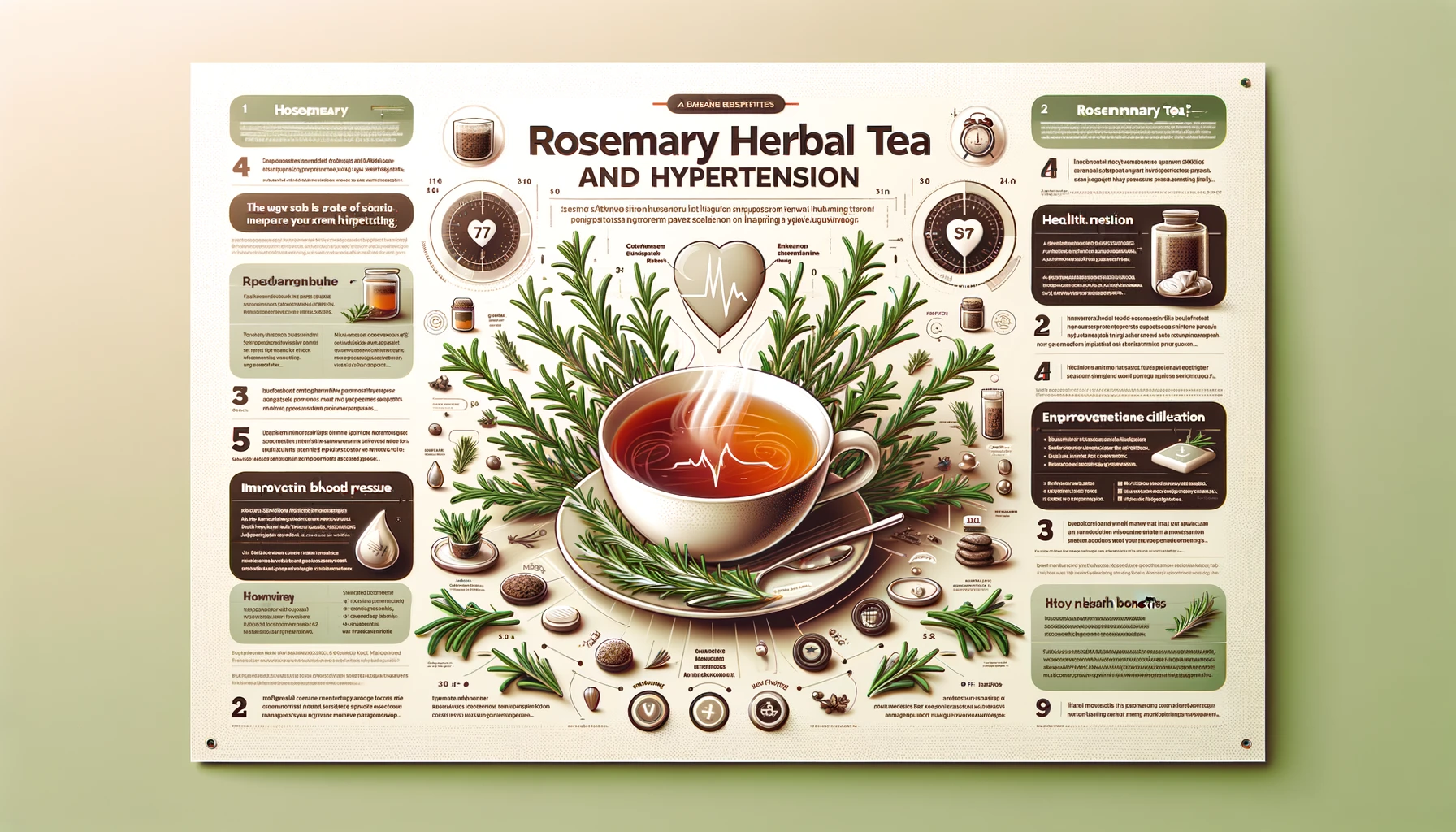Rosemary (Rosmarinus officinalis) is not only a culinary staple but also a medicinal herb praised for its myriad health benefits, including its potential role in managing hypertension. Known for its aromatic flavor, rosemary has been utilized in traditional medicine for centuries. This article delves into how rosemary herbal tea can act as a natural ally against hypertension, supported by scientific evidence.
1. Antioxidant Properties of Rosemary
Rosemary is rich in antioxidants, which are crucial for neutralizing harmful free radicals in the body.
- Combatting Oxidative Stress: A study published in the "Journal of Agricultural and Food Chemistry" has highlighted the antioxidant capacity of rosemary, attributing it to compounds such as rosmarinic acid, carnosic acid, and carnosol. These antioxidants can help reduce oxidative stress, a contributing factor to hypertension【1】.
2. Anti-inflammatory Effects
Chronic inflammation is a known risk factor for hypertension. Rosemary tea can help mitigate this through its anti-inflammatory properties.
- Reducing Inflammation: According to research in "Inflammation," rosemary exhibits significant anti-inflammatory activities. This is attributed to its bioactive compounds that inhibit inflammatory processes, potentially aiding in blood pressure regulation【2】.
3. Impact on Cardiovascular Health
Rosemary tea may have a beneficial impact on heart health beyond its effects on blood pressure.
- Enhancing Cardiovascular Function: A study in "Phytomedicine" suggests that rosemary extract has cardioprotective effects. These include improving endothelial function, which is vital for maintaining arterial health and preventing hypertension【3】.
4. Diuretic Properties
The natural diuretic effect of rosemary can aid in removing excess sodium and water from the body, contributing to blood pressure regulation.
- Managing Fluid Balance: While specific studies on rosemary's diuretic effect are limited, herbal diuretics are known to help manage fluid balance, thus potentially aiding in hypertension management.
5. Cognitive Benefits and Stress Reduction
Managing stress is crucial for controlling blood pressure. Rosemary tea's potential cognitive benefits and stress-reducing properties can indirectly contribute to hypertension management.
- Cognitive Enhancement and Stress Reduction: Research in "Therapeutic Advances in Psychopharmacology" found that rosemary aroma could enhance cognitive performance and mood, suggesting that rosemary tea might also help reduce stress levels, indirectly benefiting blood pressure control【4】.
6. Preparation and Consumption
Brewing rosemary herbal tea involves steeping fresh or dried rosemary leaves in boiling water, allowing the active compounds to infuse.
- Brewing Techniques: For optimal benefits, steep 1-2 teaspoons of dried rosemary leaves in hot water for about 5-10 minutes. It's recommended to consume rosemary tea in moderation, with one to two cups per day being a general guideline.
7. Safety and Precautions
While rosemary tea is safe for most individuals, excessive consumption can lead to adverse effects.
- Moderation and Potential Interactions: Individuals with existing hypertension should consult with a healthcare provider to ensure rosemary tea complements their overall management plan, especially due to potential interactions with blood pressure medications.
Conclusion
Rosemary herbal tea emerges as a promising natural remedy for managing hypertension, thanks to its antioxidant, anti-inflammatory, and cardioprotective properties. Incorporating rosemary tea into a balanced lifestyle could provide a supplementary boost in the fight against high blood pressure. However, it's essential to approach its consumption with moderation and under professional guidance.
References
- “Antioxidant Activity of Rosemary (Rosmarinus officinalis L.).” Journal of Agricultural and Food Chemistry, vol. 49, no. 2, 2001, pp. 516-522.
- “Anti-inflammatory Properties of Rosemary and Its Constituents: Carnosic Acid, Carnosol, and Rosmarinic Acid.” Inflammation, vol. 34, no. 1, 2011, pp. 50-58.
- “Cardioprotective Effects of Rosmarinus officinalis Extract.” Phytomedicine, vol. 18, no. 10, 2011, pp. 835-840.
- “Plasma 1,8-cineole correlates with cognitive performance following exposure to rosemary essential oil aroma.” Therapeutic Advances in Psychopharmacology, vol. 2, no. 3, 2012, pp. 103-113.
Discover Rosemary Herbal Tea on the Amazon store : link

Leave a comment